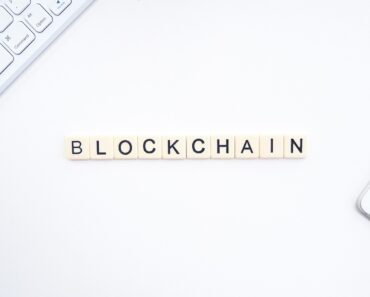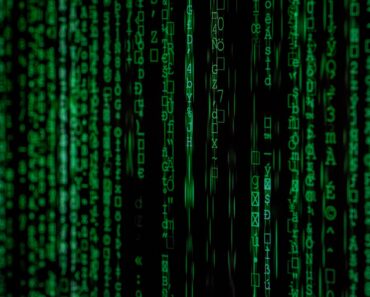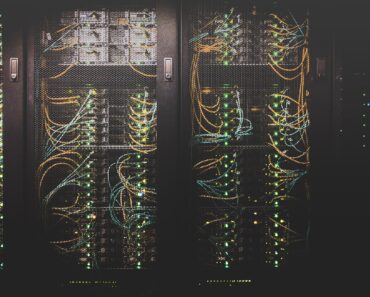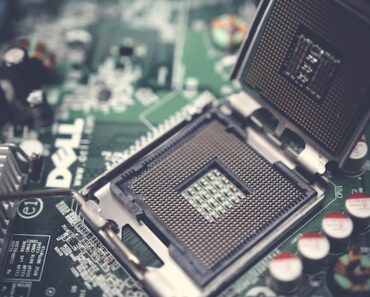Quantum computing may sound like something out of star trek, but it’s an area of computing that is being studied to enhance and outperform traditional computer systems in certain areas, especially around data modeling, simulations, and where powerful number crunching is required.
In the early days of traditional computer systems, we saw huge jumps in technology, speed, and power. However, recently you don’t see such advancements due to the limitations of traditional systems, which is why quantum computing is such an exciting area that many major companies are looking to crack.

Quantum Computing At A Glance
Quantum computing is an attempt to build computer systems based on the principles of quantum theory. You probably know that at the core, traditional computers store everything as 0 or 1, or true or false, which can and currently does restrict their performance.
With quantum computing, the idea is to use quantum bits or “qubits” that allow the system to store information as both 0 and 1 simultaneously, basically existing in multiple states. Qubits can do this due to certain quantum properties that are being harnessed, which are superposition and entanglement.
Why is this Important?
Traditional computer systems can only linearly increase their power, so you add more transistors and get a little more power, whereas quantum computing allows you to add more qubits, and computing power can increase exponentially.
What Is Superposition?
Qubits can represent many different combinations of 0 and 1 simultaneously, which traditional computers can’t do. Being in multiple states simultaneously is called superposition and requires powerful lasers and microwave beams to manipulative the qubits.
Using qubits, a quantum computer can then calculate information much faster because it’s calculating things simultaneously. However, you need to wait for the full calculation to complete before getting the final answer, as once you measure a qubit, it falls back to being either 0 or 1 like a traditional computing system.
You may have heard or read of this phenomenon before, where the state of particles changes once you view it or try to calculate it; the same thing is happening with qubits.
What Is Entanglement?
Quantum computers can form pairs of qubits, making them “entangled,” making the qubits exist in the same state as each other, even if large distances separate them.
This is a crucial component of quantum computing; as you add more qubits, you get exponential power increase, which was not previously possible with traditional computing systems. How this actually works is not entirely well understood; we just know that it does and are thankful for that.
Using entangled qubits and special algorithms, quantum computers are able to speed up calculations and perform much faster than traditional computers.
The biggest issue with quantum computing is that minor issues can cause errors, and this is called decoherence.
What Is Decoherence?
As soon as you observe or there is a disturbance to qubits, they stop and set themselves back to either 0 or 1, rather than being able to be simultaneously both. If the qubits stop, then you don’t get complete calculations, and the process has failed.
Observing is obvious, and you check the results or view what’s happening before everything has been completed.
However, disturbances can be anything that modifies the environment, so this could include temperature variations or even movement. This is why quantum computing components need to be in vacuum-sealed and temperature-controlled chambers.
The algorithms involved in quantum computing can try to work around these issues and compensate, as well as add more qubits to the processing to get a “logical” qubit which is one that is reliable and performs the actual calculations. However, this process can deplete your computational capacity, which is one of the big complexities companies are trying to fix in quantum computing.
Does Quantum Computing Have Real World Use Now?
Due to the complexities of stabilizing qubits, quantum computers cannot outperform some of the more powerful traditional computers. However, many companies are starting to utilize quantum computing so that they’ll have an edge once they’re powerful enough and cheap enough to really use.
Where Would Quantum Computing Replace Traditional Computing?
Quantum computing, even when able to surpass powerful traditional computing systems and supercomputers, won’t replace traditional computing systems in all areas because each has distinct advantages over the other.
Traditional computers will still be best suited for everyday tasks, so you likely won’t be browsing the internet on a quantum computer or using it to write articles, and companies won’t be using it for internet servers.
What quantum computing will do is be able to run simulations faster, take in and process data quicker and more accurately, and anything that involves number crunching.
So companies will be able to use this to create better navigation systems, especially where GPS is unavailable, such as submarines. Missile defense systems will be able to pinpoint and take out missiles more accurately. Pharmaceutical companies will be able to run simulated tests against their products and many more applications.
One area that could be a big concern is encryption and decryption of data. Having access to quantum computing could cut through encryption algorithms very quickly. So what would currently take 1000 years to decrypt could potentially be done on a quantum computer in a day.
This issue should be a significant concern to anybody with private information stored on computer systems, which is almost every human on earth right now. Consider how safe your money will be; your communication and personal data will be accessible. It will take quantum computing to create new encryption, but it will depend on who gets access to quantum computing first.
When Will Quantum Computing Reach Real World Use?
IBM has plans to offer true and powerful quantum computing by 2023, so reports to be very close, but that is yet to be seen. Even if they do produce something, it will likely be too expensive for general use, so computer power may just be loaned out, or it will just be used for more research by IBM over the next decade.
Google reports they plan to have potential quantum computing cloud services by 2029, which may be a more realistic goal for the general public or companies to actually use quantum computing at its true and full potential.
Most experts predict that 2030 will be when quantum computing is available for commercial purchase and use, but that does depend on researchers and companies breaking through the current barriers they are facing and then testing and showing that quantum computing actually beats traditional computing power in crunching numbers at a similar cost.






